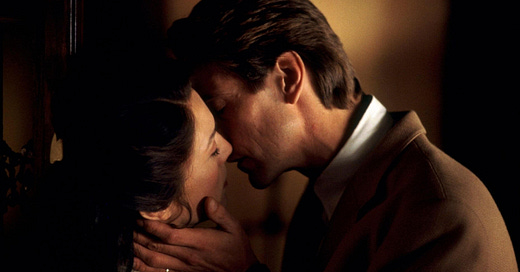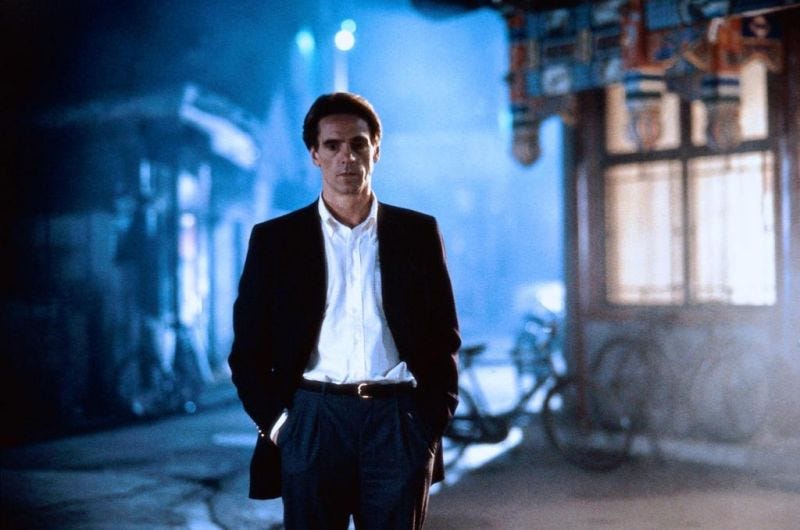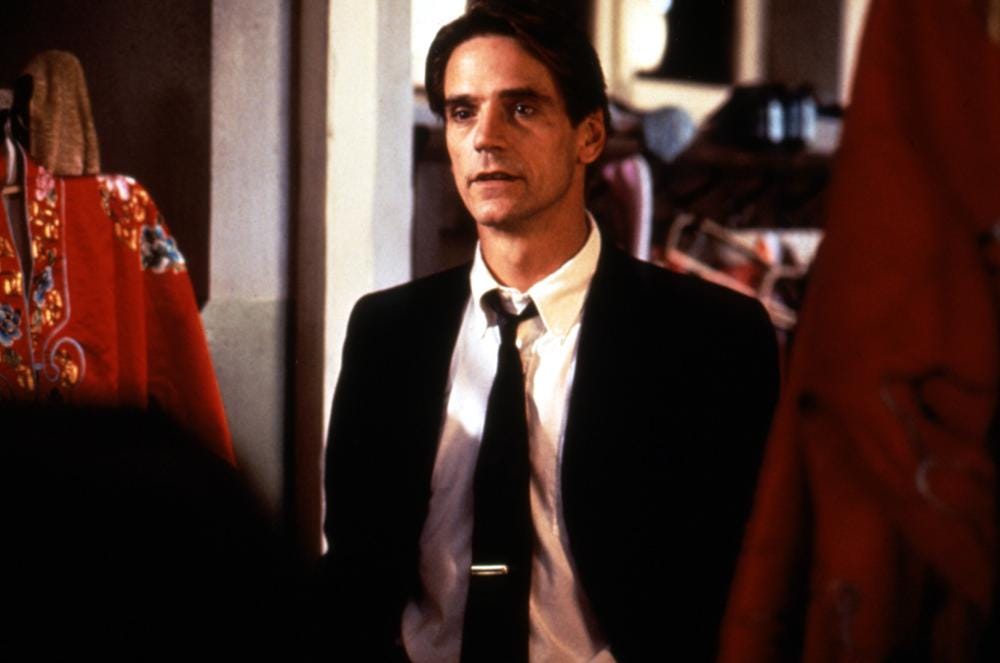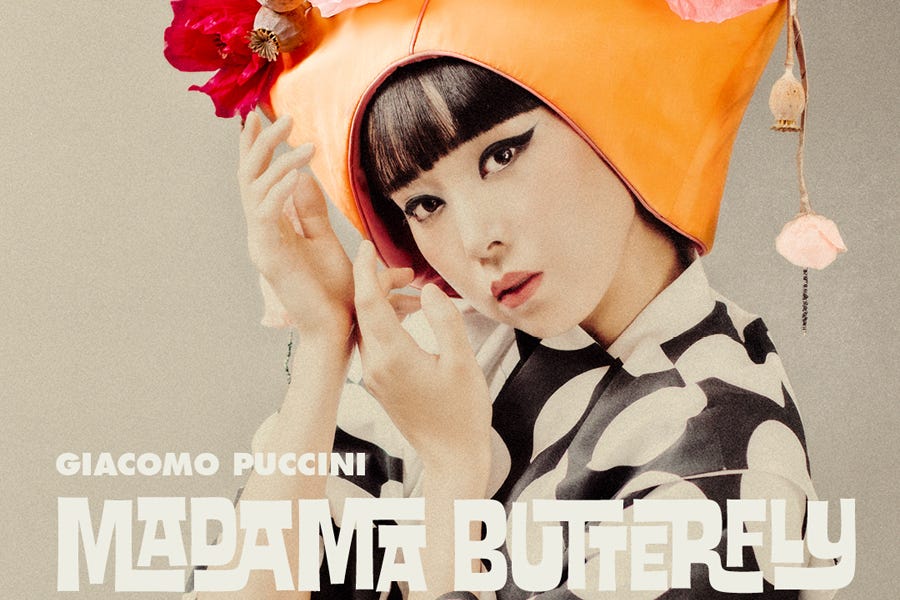Rewriting Butterfly: Opera, Film, and the Stories We Project
David Cronenberg Meets Madama Butterfly
This spring, Vancouver Opera launches a season of deep reflection and creative engagement around Puccini’s Madama Butterfly, returning to the Queen Elizabeth Theatre in a sweeping new production that runs April 26–May 4, 2025. Directed by Mo Zhou, one of the most compelling operatic storytellers of her generation, this production explores the work's tension between fantasy and reality with a bold visual aesthetic and nuanced cultural framing. Mo’s vision centres Cio-Cio-San’s inner life with clarity and complexity, unflinchingly addressing the opera’s legacy while embracing its musical brilliance.
Reclaiming Madama Butterfly
On Monday, we’ll begin rehearsals for one of opera’s most iconic—and most complex—stories: Madama Butterfly. Since its 1904 premiere, Puccini’s lush, devastating score has kept this work at the centre of the operatic canon. Se…
As part of this broader exploration, we’re partnering with VIFF (Vancouver International Film Festival) for a special screening of David Cronenberg’s M. Butterfly (1993) on April 7 at the VIFF Centre.
At first glance, these stories share a spine—a Western man falls in love with an Asian "Butterfly," with devastating consequences. But look again, and the nuances unfold. One is a tragedy sung in Italian, the other a cerebral film adapted from David Henry Hwang’s Tony Award-winning play. Each invites us to look inward: at how we love, how we imagine, and how we project. Each shows how a single narrative can become a mirror, a mask, or a myth.
Cronenberg’s Quiet Devastation
In M. Butterfly, David Cronenberg brings his signature focus on the body—its vulnerability, its performance, its betrayal—to a subtler, psychological terrain. Known for pioneering "body horror" in films such as The Fly, Dead Ringers, and Videodrome, Cronenberg has long been interested in the limits and transformations of the human form. In M. Butterfly, the mutations are not physical but emotional, psychological, and cultural.
Based on a true story, the film follows René Gallimard, a French diplomat stationed in China, who falls in love with Song Liling, a Chinese opera singer who performs female roles. Gallimard believes Song to be a woman—and believes their relationship to be a great romance. In fact, Song is a man, a spy, and a master of illusion. The deception spans decades.
Playing Gallimard is Jeremy Irons, whose performance is subdued, internal, and quietly shattering. Song is portrayed by John Lone, whose enigmatic portrayal walks the tightrope between charisma and concealment. The film is supported by a haunting score by Howard Shore and meticulously restrained production design by Carol Spier. Cronenberg is not interested in scandal. He is interested in delusion—and with this cast and creative team, he pulls the viewer into the quiet collapse of a man consumed by fantasy.
The film is layered with metatheatrical gestures: scenes unfold on literal stages; mirrors abound; voices echo from offscreen like ghostly refrains. The film's colour palette—washed-out greys, bruised reds—evokes a world drained of clarity, where truth slips beneath the surface. Cronenberg's genius is in showing how Gallimard’s fantasy persists not despite the clues, but because of them. He needs the illusion. He needs the story.
In the final sequence, Gallimard performs Butterfly's death aria in drag, wearing a kimono, repeating her words. What might seem like parody becomes instead a confession. A collapse. It is the most Cronenbergian moment in the film: the body's performance overtaking the soul's. Illusion becomes identity. Identity becomes undoing.
“I was drawn to M. Butterfly because it was about love and betrayal, but also because it showed how powerful ideas—about race, gender, and culture—can blind us to the truth.” —David Cronenberg
“The West has a persistent fantasy of the submissive Asian woman—and that fantasy has consequences.” —David Henry Hwang
The Gaze in Puccini
Premiering in 1904, Madama Butterfly has long been cherished for its lush orchestration and heartbreaking emotional arc. But its story—a young Japanese woman, Cio-Cio-San, who believes herself married to an American naval officer only to be abandoned—also asks us to interrogate the dynamics of race, gender, and power embedded within the opera canon.
Puccini's music grants Cio-Cio-San emotional depth and dignity. Her arias are among the most poignant in opera. "Un bel dì vedremo," in which she imagines her lover returning, is a masterclass in yearning and self-deception. But the very beauty of the music can obscure the violence of the story it carries: a young woman is exoticized, possessed, and discarded.
Under the direction of Mo Zhou, Vancouver Opera’s 2025 production of Madama Butterfly offers a bold and historically grounded reimagining of the classic work. Mo, known for her sharp dramaturgy and fearless vision, sets the production in post–World War II Japan, during the Allied occupation. This period setting shifts the lens of the opera, grounding the story in a moment of immense upheaval and cultural tension—where traditional structures were being dismantled and redefined.
Mo has undertaken extensive research into the historical and social landscape of occupied Japan to inform the production's design, tone, and dramatic choices. This includes examining military policies, post-war gender dynamics, and the transformation of Japanese society in the shadow of Western power. By anchoring the opera in this specific time and place, she reframes Cio-Cio-San not simply as a symbol of romanticized loss, but as a woman navigating real, political stakes.
Her staging foregrounds Cio-Cio-San’s perspective—not as a passive victim, but as a complex protagonist navigating impossible choices in a world reshaped by foreign dominance. Through culturally sensitive design, stark visual metaphors, and emotionally honest performances, Mo’s production asks audiences to reckon with Butterfly not as a static classic, but as a living—and deeply political—story.
The Opera Reimagined
In addition to the film and theatrical versions of M. Butterfly, David Henry Hwang’s searing text has also inspired an operatic adaptation. Composed by Huang Ruo with a libretto by Hwang himself, the opera premiered at Santa Fe Opera in 2022. This version brings the play full circle, returning it to the operatic form that originally inspired it—Puccini’s Madama Butterfly—but with a radical twist. Rather than retelling the same tragic tale, Ruo and Hwang use the operatic medium to critique and dismantle it, fusing Western and Chinese musical traditions while foregrounding themes of surveillance, gender fluidity, and postcolonial critique.
The opera’s score is rich with cultural layering: elements of Peking Opera intermingle with contemporary classical soundscapes, making it both a homage and a challenge to the Western canon. By reclaiming the operatic voice for the very characters marginalized in Puccini’s work, the new M. Butterfly offers a powerful gesture of reclamation—one that insists on seeing through illusion and hearing beyond stereotype.
Opera, Film, and the Performance of Identity
Joining this special event at VIFF is Luka Kawabata, a Japanese Canadian opera artist, composer, and vocal coach whose creative work explores queerness, cultural legacy, and the politics of voice. Luka is a longtime collaborator with Vancouver Opera and a brilliant emerging thinker in the operatic field. For him, M. Butterfly is not just a cultural critique—it is a personal landscape.
"This story lives at the intersection of so many truths and untruths I've lived with," Luka writes. "As a queer Japanese Canadian artist, I've had to reckon with what it means to perform identity, to be read through a gaze, to speak in a voice that doesn't always feel like mine."
Screening Details:
M. Butterfly (1993, dir. David Cronenberg)
✨ In partnership with Vancouver Opera and VIFF
🗓 Monday, April 7, 2025
🕒 7:30 PM
📍 VIFF Centre, 1181 Seymour St.
🎤 Intro by Ashley Daniel Foot & Luka Kawabata
🎟️ Get tickets
Opera Details:
Vancouver Opera closes the season with Puccini’s Madama Butterfly – a timeless tale of love and loss.
Stunning visuals, transcendent melodies, and a timeless tale of love and loss make Madama a must-see season finale! Buy tickets now. 👇
Get tickets 🎟️
Performance Dates:
Saturday, Apr 26 | 7:30PM
Sunday, Apr 27 | 2:00PM
Thursday, May 1 | 7:30PM
Saturday, May 3 | 7:30PM
Sunday, May 4 | 2:00PM












